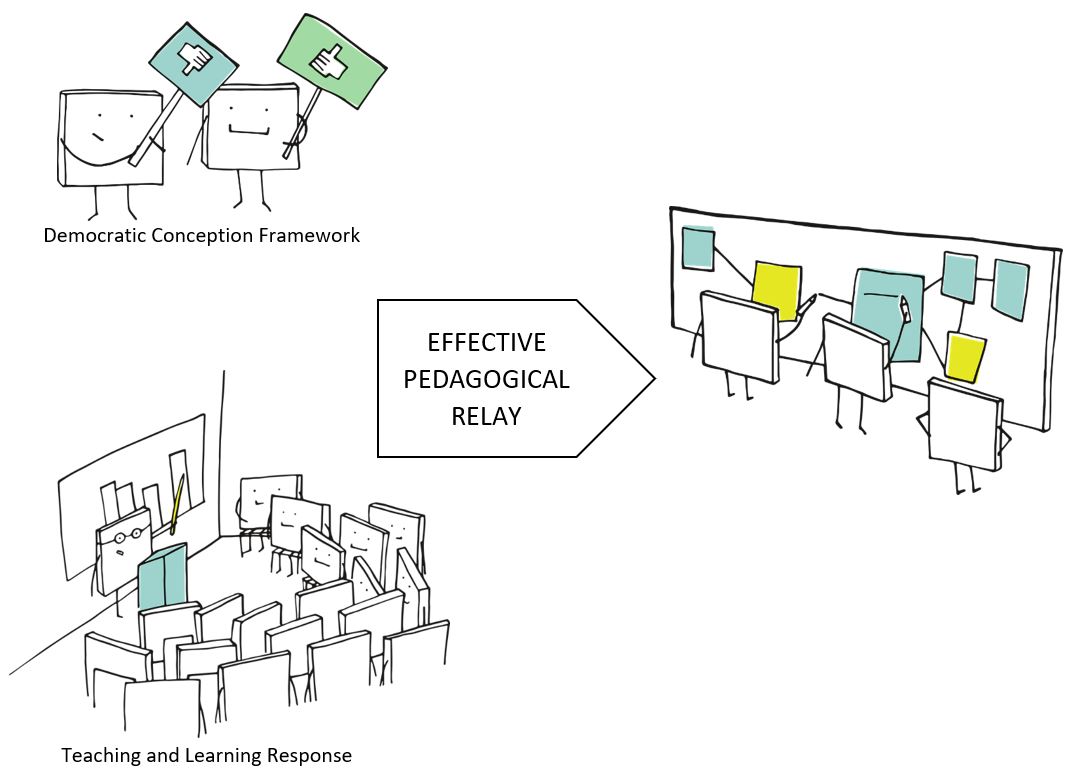6.1 Educational Ethics

The term, “ethics,” is a branch of philosophy that involves analyzing and conceptualizing moral behaviour and determining right from wrong. Educational ethics, in this sense, is analyzing and conceptualizing moral behaviour through pedagogical determinants. This means observing right or wrong actions. Ethical frameworks, regarding learning and epistemology, follow a set of normative ethics, which are morals of how one ought and should act on the ethical principles of justice, utilitarianism, deontology, and human rights[1].
- Justice: fair according to societal standards
- Utilitarianism: the greatest good for the greatest number
- Deontology: meeting duties obligated by society
- Human Rights: the rights of humans to live, be free, and pursue happiness
Throughout this chapter, learning for citizenship and moral development will be reviewed in terms of normative ethics.
This can be looked at through educational democratization. It was Dewey who introduced the democratic conception of education as freeing for the individual and applying new methodological ideas of teaching and learning[2]. What the democratic conception achieves is a pathway towards a moral framework for teaching and learning. Content can be at the discretion of the educator, however, the process of learning is democratized through fairness, obligation, majority, and humanistic actions. Thus, democratic education, through an ethical framework, can be achieved. Effective pedagogy relies on these building blocks.

The role of schools within this ethical paradigm can be seen by where they are on their journey. Venezia, Venezia, Cavico, and Mujtaba conclude that age, formal education, and “ethics” education have no significant impact on ethics and morality[3]. This brings up questions about the value of ethics education, and whether schools are failing in normative ethics of justice, utilitarianism, deontology, and human rights? These findings suggest that marginalization in schools is a failure of justice and human rights. On the other hand, the growth of epistemology and pedagogy may have resulted in more rights and fairness for people. This ultimately adds to the conceptual ambiguity of ethics and moral developments in relation to schools.
Application of Ethics and Education
An analysis by Sergei Nizhnikov infers that the role of transcendentalism will become the dominant philosophy, as it incorporates the cross-cultural and mutual understanding of ethical actions in a modern and globalized world[4]. On a practical level, transcendentalism co-mingles, critiques, and reasons with the many normative ethics structures of justice, utilitarianism, deontology, and human rights. This is beneficial as it helps to develop a meta-cognitive conception of the different ethical structures and how to apply them in teaching and learning. As an example, a teacher may apply a justice framework, by using fairness, when marking papers. This is opposed to applying a utilitarian framework for deciding what activity the class wants to engage in through a vote. Combining and moving beyond ethics is an important factor, especially in a modern education framework. Use the accordion folder below for a more concise understanding of educational ethics.

